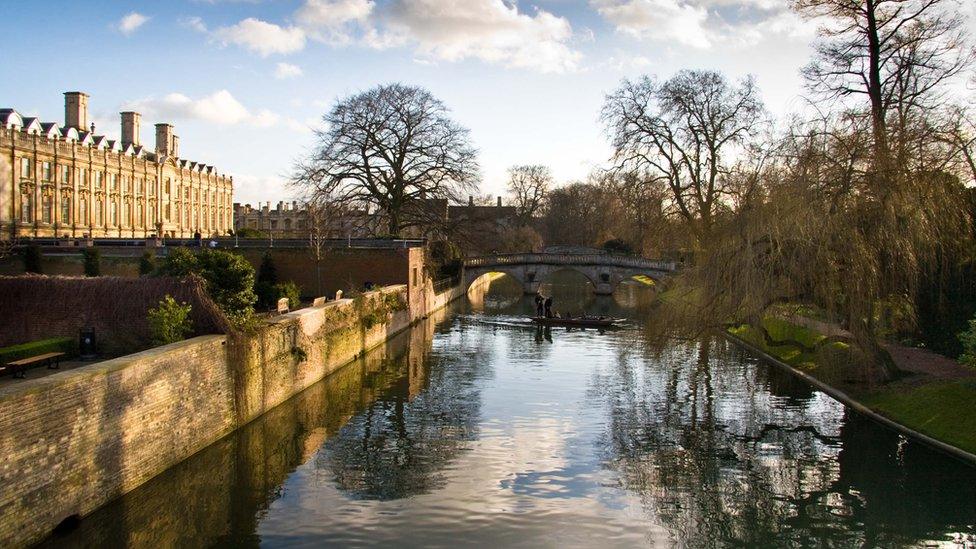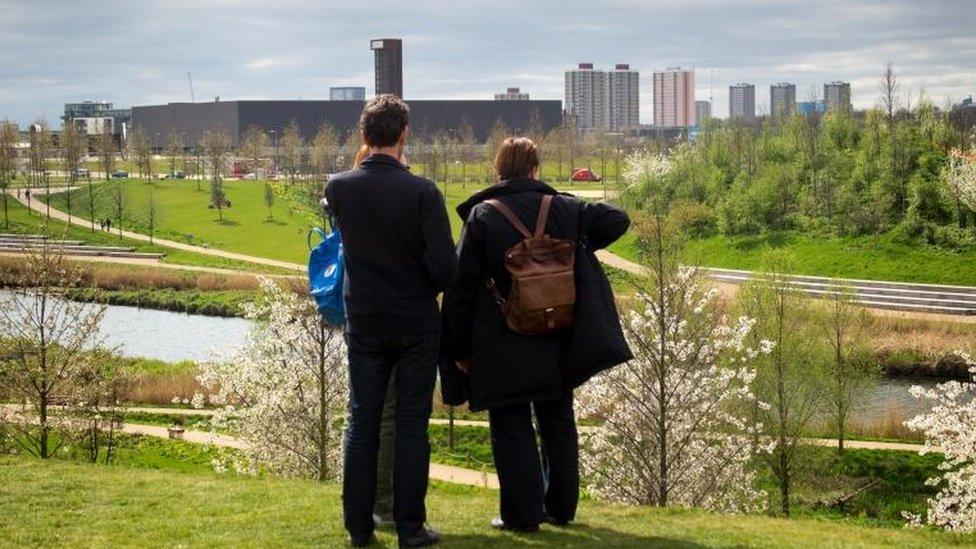UK house prices: East and South driving rises, says ONS
- Published
- comments

Prices of properties in the East of England are rising the fastest in the UK
House prices continued to rise strongly following the Brexit vote - driven by increases in eastern and southern England, official figures show.
The annual rise in UK property prices accelerated to 8.4% in August, said the Office for National Statistics (ONS), external.
The fastest growth was a 13.3% rise in the East of England, followed by rises of 12.2% in the South East of England and 12.1% in London.
The gap in prices between regions is widening, the data shows.
On a local level, the most expensive homes were found in the London borough of Kensington and Chelsea, where the cost of an average house was £1.3m.
The cheapest areas to purchase a property were Burnley and Blaenau Gwent, where an average home cost £77,000.


Rises and falls
The figures were published as the ONS announced that the cost of living rose by 1% in the year to September. The rate of inflation rose from 0.6% in August, which was the biggest month-on-month rise in the inflation rate in more than two years.
Property prices grew at a faster rate than general inflation in most areas of the UK.
The cost of the average UK home rose to £219,000 in August 2016 - a £17,000 rise from a year earlier.
Campbell Robb, chief executive of Shelter, said: "The idea of owning a home is still a complete fantasy for millions of families in this country.
"The new government's focus on tackling these problems is reassuring, but we hope there will be even more substantial commitments on building more genuinely affordable homes in the chancellor's Autumn Statement next month."
Property prices in August were typically at £236,000 in England, £145,000 in Wales, £145,000 in Scotland, and £123,000 in Northern Ireland.

The Queen Elizabeth Olympic Park is being developed after the 2012 Games
Locally, prices rose fastest over the course of the year in the London borough of Newham, home to the Queen Elizabeth Olympic Park, where prices increased by 23.7% to stand at £373,000.
The biggest fall was recorded in the city of Aberdeen, where the effect of the lower oil price on the community is likely to have been one factor in causing prices to drop by 8.7% to stand at £176,000.
The ONS house price figures are generally regarded as the most comprehensive but are published later than other surveys.
Recent surveys by mortgage lenders, the Halifax and Nationwide, suggested that annual increase in house prices had slowed in September compared with the previous month.
The Royal Institution of Chartered Surveyors (Rics) has said that demand among home buyers has seen a modest recovery following "post-referendum jitters", having risen for the first time in seven months in September.